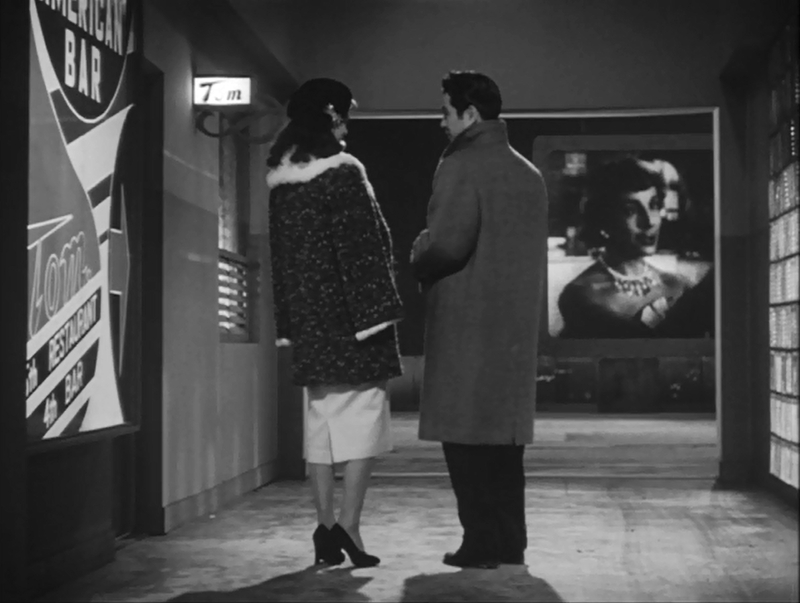 |
| Izumi Ashikawa and Tatsuya Mihashi |
Almost all movies – and stories, for that matter – rely on conflicts. Conflicts between a man and a woman. Conflicts between civilization and nature. Conflicts between love and hate. Between courage and weakness, old and new, mighty and poor etc. These conflicts casually employ archetypes of many sorts, to reorient audience to the familiar path of narrative development. It helps to pose ethical theme, metaphysical theme, something meaningful without going into complex discourse of human interaction. One of the most popular device of conflict is that of generations. Teenagers look and act like bubble-headed egoists with a lot of knowledge about modern-day practicalities, while the older parents are stubborn pieces of exhausted mental capacities with a lot of knowledge about bygone day’s impracticalities. And reconciliation at the end is the must. At the beginning of Fusen (Japanese for Balloon), it looks like another melodramatic tale of this sort of generation gap. A reserved, serious and gentle father, Haruki (Masayuki Mori) and his wayward, nihilistic son, Keikichi (Tatsuya Mihashi). But as the story unfolds, we realize it is not about generation, it is about empathy.
Keikichi has been in relationship, but getting bored with a woman of the Ginza nightclub, Kumiko (Michiyo Aratama). One night, he was introduced to a singer, Mikiko (Mie Kitahara), by the foreigner’s nightclub owner, Tuzuki (Hiroshi Nihonyanagi). Keikichi damps Kumiko more quickly than you can imagine. Mikiko was looking for a break in the music business and Tuzuki, (actually her lover) suggested her to seduce Keikichi. He is a prodigal son of the successful camera company president, Haruki, and that may come in handy someday. Kumiko descends into a spiral of serious depression and hopeless obsession.
As the story evolves, our view shifts into a slightly different perspective. Haruki and his daughter, Tamako (Izumi Ashikawa), gradually spin the tale of lost cause and alienation. Tamako, who had contracted Polio while young, has some difficulty in her left arm muscle. Her brother, Keikichi and mother consider her as slightly retarded and remind her whenever possible. Haruki begins to see something has gone wrong, as he experiences the ethical erosion in his family. Though extremely restrained and mild-mannered, Haruki starts soul-searching with Tamako in Kyoto.
The film’s director, Yuzo Kawashima’s direction is ingenious and effective. I really liked how he handled the lighting, the atmosphere and the expression of the same locations in the different stages of the narrative. The very first scene of the film is Kumiko’s room. The atmosphere of her room changes as her life changes. Strange it may seem, but the room gets brighter and more peaceful even, as she goes deeper in misery. This amplifies her depression and sorrow. Moreover, very understated, but obvious narrative cues poignantly tell us the coming doom. When Tuzuki leaves Kumiko’s room uttering the same words as Keikichi’s in the earlier scene, we smell something.
 |
| Tatsuya Mihashi and Masayuki Mori |
Kawashima himself suffered from ALS since his childhood and it had become painful for him to just walk on the set. Probably because of this, his portrayal of Tamako is both subtle and astounding. He doesn’t emphasize nor deemphasize disability in her left arm. He shows that her ‘retardation’ is only in Keiichi and her mother’s head, and he does so in a subtle and natural manner. Though this is a melodrama, it does not offer a comfortable catharsis nor a fantastic picture of moral uplifting. In fact, the ending is one of the most quietly horrifying ones I have ever seen. Kawashima did not shy away from suggesting the total lack of empathy in Keikichi and his mother. He did it with a single shot of Haruki’s face, who realized his son and wife did not change and probably alienated their own kin. Even after all they went through. It is a quiet, but powerful statement.
Fusen (風船, 1956)
Directed by Yuzo Kawashima
Written by Yuzo Kawashima and Shohei Imamura
Based on the novel by Jiro Osaragi
Starring Masayuki Mori, Tatsuya Mihashi, Michiyo Aratama, Mie Kitahara, Izumi Ashikawa
Nikkatsu
Copyrighted materials, if any, on this web page are included as “fair use”. These are used for the purpose of research, review or critical analysis, and will be removed at the request of copyright owner(s).

